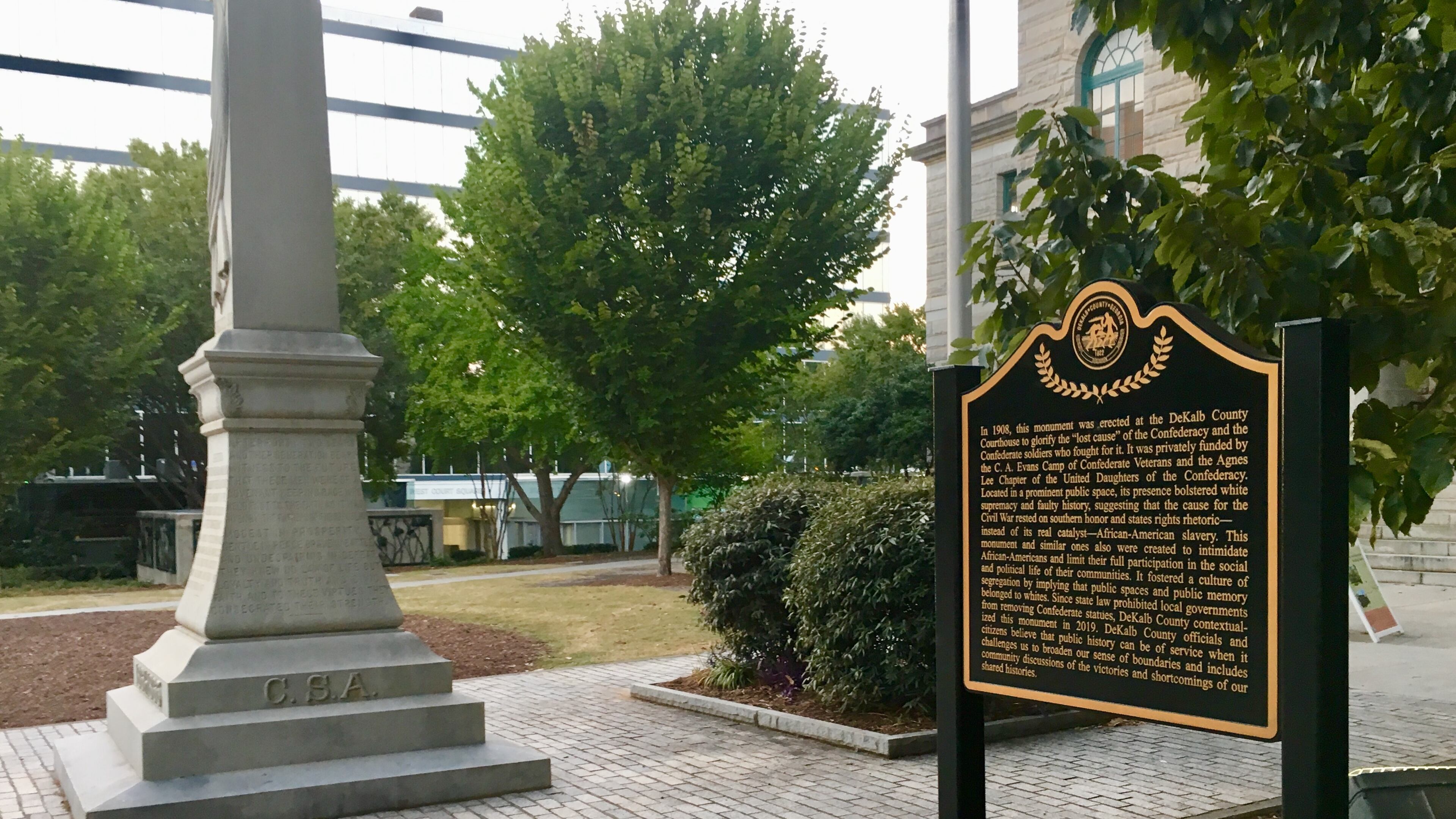Marker or no marker, Hate Free Decatur still wants monument’s removal

Two weeks ago DeKalb County completed installation of bronze plaque on Decatur’s square giving 184 words-worth of historical clarity to the controversial Confederate obelisk standing a few feet away.
It was not exactly what the group Hate Free Decatur envisioned when it began clamoring for the monument’s removal over two years ago.
“I wouldn’t call [the new marker] a compromise,” said Sara Patenaude, who co-founded Hate Free Decatur in August 2017. “I call it a half measure.
“Nevertheless,” she added, “we do count it as a victory. We are seeking the truth and [the language on the marker] is countering the propaganda represented by the monument.”
As reported last week by the AJC’s Tia Mitchell the 300-pound marker cost $3,000 to build and install. The marker’s text states the monument was “erected … to glorify the ‘lost cause’ of the Confederacy … [and was also] created to intimidate African Americans and limit their full participation in the social and political life of their communities.”
In Sept. 2017, Hate Free Decatur and other local groups denounced the city of Decatur’s idea for a similar “exhibit” near the monument, described as a possible series of panels reflecting the “experience of African-Americans in the South surrounding the war era.”
Instead, for months Patenaude and many others tried to get the 30-foot-tall monument, erected in 1908, banished from the square altogether. They talked to representatives of the Stone Mountain cemetery, the Decatur cemetery, various historical sites and museums, but found no takers. DeKalb County, she said, put out a Request for Proposal to companies for removing the monument but also received no interest.
“Some people want it destroyed and some don’t,” she said. “But all of us agree that it needs to be moved from a position of prominence.”
But that was put on hold indefinitely after last spring’s legislative session. A bill sponsored by Chickamauga Republican state Sen. Jeff Mullis, and passed in April, gave even stronger protections for public monuments than the original 2001 law. Shortly thereafter the county began planning for the current marker.
“What [Hate Free Decatur wants] to do as a group,” Patenaude said, “is not just look at the symbols of white supremacy, but we also want to address white supremacy as it’s happening today. I’m talking about affordable housing, educational disparity in the schools.
“As for that monument,” she said, “it’s unlikely to move until we have new political leaders.”

